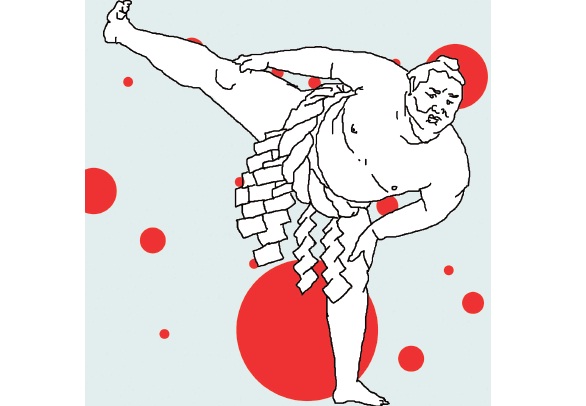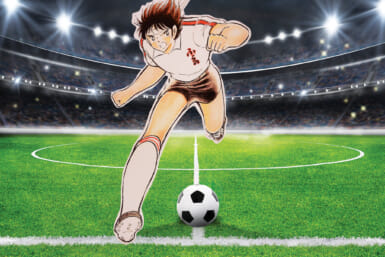Robert J. Collins is grappling with change in the world of sport
THESE ARE dynamic times. And if that isn’t a damn nuisance, I don’t know what is.
I watched a one-day special sumo tournament on TV last week — the type of contest where all the wrestlers fight each other on a round-robin basis until the last man is standing. These are fun events designed to stir up more interest in the sport.
Well, it was interesting — to me anyway. But I’m not sure it was all that fascinating to the fans in the stands of the half-full house. In these dynamic times, rare was the Japanese sumo wrestlers who made it beyond round two.
Three Mongolians and three guys from the former Soviet Union slapped and slammed their way into the final bouts. The guy from Georgia in the Russian bloc, Hairy is his name, defeated the Grand Champion from Mongolia (whose name is whatever he wants it to be) to win the tournament.
What to do? What to do? The Japanese are losing interest in their sport. The dynamics of internationalism has opened the door to any bear of a man from wherever. JAPANESE MUST TAKE MORE INTEREST IN SUMO. Furthermore, according to the elders, the interest must take place at an earlier age.
Now I’m pleased to report that some thinking “outside the box” has taken place. Some folks have put their heads together and decided that youngsters in Japan must be coaxed and coddled in a special way into competition. It fits, they say, the times.
Coaxing and coddling means no longer will kids be required to expose their round little butts to hordes of strangers dropping in on their practices and beginning-level bouts. They won’t be wearing jeans exactly, instead they’ll be wearing tights covering them to mid-thigh. (When they finish their bouts they can go out and immediately join the bicycle team.)
I don’t know, but it seems to me there’s a whole world of other things involved in sumo that would require the coaxing and coddling of today’s dynamic kids — things like head bashing practice sessions, daily gorging, attending to the hygienic demands of stable seniors, painful and lifelong injuries, and absolutely no escaping for a few hours and being completely anonymous in a crowd at the game center. Whether or not one’s butt is chastely covered seems to be the least of the problems.
But let’s assume that a new sensitivity in the area of personal appearance is now a major factor in sports participation. Today’s dynamics call for the “look” of unthinking and mismatched informality to be cool. Be warned, however, it takes a great deal of thinking to reach that unthinking, mismatched look. Let’s also go outside the box and design uniforms for the sports where participation is beginning to suffer.
Women’s volleyball teams will all wear taffeta, knee-length, full skirts over faded, rat-eaten jeans, plus florescent tank tops and bras with obvious plastic straps. Cool.
Professional baseball is suffering — all the stars went to the U.S. In addition, the Tokyo Giants have assumed their rightful place as a mediocre contender. No guy wants to wear a cap (notice how many take off their hats and monkey around with them in between pitches) so caps will become optional. No real man wants to mess up a fine hair-do, but balding guys will be given a grace period until the hair restorer kicks in.
(Incidentally, Horie-san of Live-Door is way ahead of the curve. All aspiring baseball executives should think in terms of suit coats and T’s. It’s dynamic.)
Golf. Would you believe it? There are scores of courses around the country going begging for business. But think of this. There is no other sport where you wear your own clothes but where “uniform” is so rigidly applied — collars, sleeves, trouser length and fabric, glove and hat. The answer? Get rid of the “uniform” concept. Dynamic times? Hip hop all the way.
Tennis will require every article of clothing to be tennis ball yellow. The games will go quicker and I, color blind, will get on the courts sooner and stay longer.
Okay, the above needs work, but these are dynamic times. I’ll lie down and get to the rest later.









